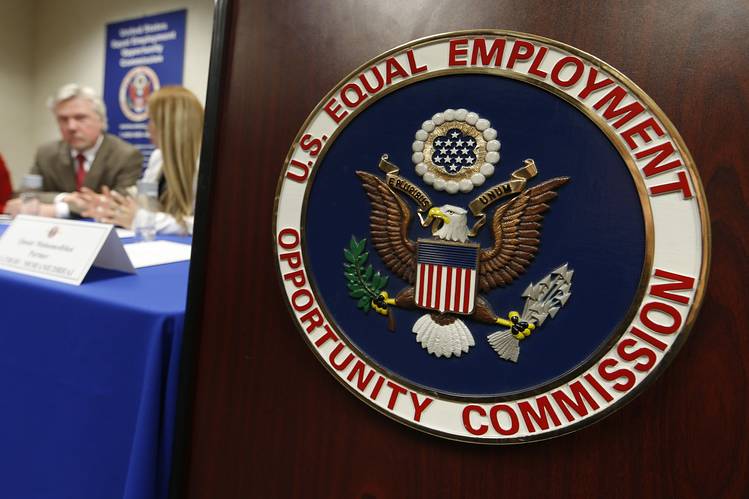TL;DR:
- The EEOC released a technical assistance document focused on preventing discrimination in automated systems and AI used in employment procedures.
- The document explains how Title VII of the Civil Rights Act applies to the use of AI and automated systems in the workplace.
- Employers must ensure that these technologies align with civil rights laws and values of fairness, justice, and equality.
- The document discusses adverse impacts and helps employers prevent discrimination in the workplace.
- It provides guidance on evaluating whether automated systems may have an adverse or disparate impact based on protected characteristics.
- Employers are encouraged to conduct self-analysis to identify potential discriminatory practices.
- The technical assistance document is part of the EEOC’s initiative to ensure AI and algorithms used in employment decisions comply with civil rights laws.
- The EEOC enforces federal laws that prohibit employment discrimination.
Main AI News:
The corporate landscape continues to evolve with the integration of advanced technologies. In light of this transformation, the Equal Employment Opportunity Commission (EEOC) has taken a proactive stance to address potential discrimination concerns. Recently, the EEOC unveiled a comprehensive technical assistance document titled “Assessing Adverse Impact in Software, Algorithms, and Artificial Intelligence Used in Employment Selection Procedures Under Title VII of the Civil Rights Act of 1964.” This document serves as a guiding resource for employers, elucidating the application of Title VII to automated systems, particularly those leveraging artificial intelligence (AI).
As organizations increasingly rely on automated systems, including AI-powered tools, to streamline various employment processes such as candidate selection, performance monitoring, and compensation determinations, it becomes crucial to ensure that these technologies operate within the framework of existing civil rights legislation. Without proper safeguards in place, there is a tangible risk of unintentionally breaching the tenets of civil rights laws.
EEOC Chair, Charlotte A. Burrows, emphasizes the imperative of aligning the use of AI and automated systems with the principles of fairness, justice, and equality. She states, “As employers increasingly turn to AI and other automated systems, they must ensure that the use of these technologies aligns with the civil rights laws and our national values of fairness, justice, and equality. This new technical assistance document will aid employers and tech developers as they design and adopt new technologies.”
The recently released technical assistance document by the EEOC is centered around the concept of adverse impact, a critical element of civil rights. It aims to guide employers in mitigating the potential for discrimination stemming from the use of AI in the workplace.
Furthermore, the document builds upon prior releases by the EEOC, including technical assistance on AI and the Americans with Disabilities Act, as well as a joint agency pledge. It addresses common queries that employers and tech developers may have concerning the application of Title VII to automated systems in employment decisions, helping organizations assess whether these systems have an adverse or disparate impact on protected characteristics specified in Title VII.
Chair Burrows encourages employers to conduct ongoing self-analysis to ascertain if their technology usage could inadvertently lead to discriminatory practices. She remarks, “I encourage employers to conduct an ongoing self-analysis to determine whether they are using technology in a way that could result in discrimination. This technical assistance resource is another step in helping employers and vendors understand how civil rights laws apply to automated systems used in employment.”
The technical assistance document from the EEOC marks a significant contribution to its Artificial Intelligence and Algorithmic Fairness Initiative. Through this initiative, the EEOC strives to ensure that software, including AI, employed in hiring and other employment decisions adheres to the federal civil rights laws it is entrusted to enforce.
Conlcusion:
The release of the technical assistance document by the Equal Employment Opportunity Commission (EEOC) regarding the use of AI and automated systems in employment procedures carries significant implications for the market. Employers and tech developers operating in various industries must be mindful of the potential adverse impact of these technologies on protected characteristics, as outlined by Title VII of the Civil Rights Act.
By aligning the use of AI with civil rights laws and fostering a fair and inclusive working environment, businesses can proactively mitigate the risk of discrimination claims and contribute to a more equitable labor market. This development underscores the growing importance of ethical considerations and regulatory compliance in the adoption and implementation of advanced technologies, reinforcing the need for businesses to prioritize fairness, justice, and equality in their employment practices.

